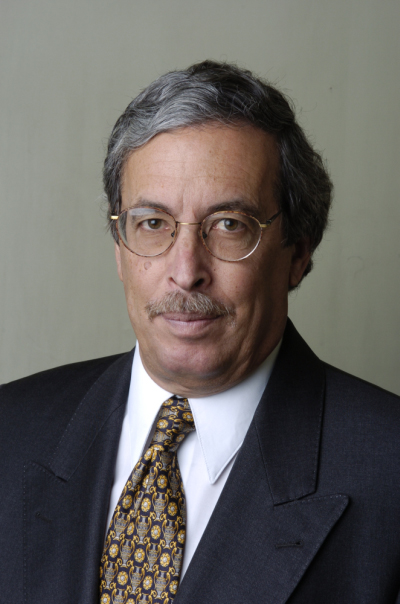
How democratic is Swiss democracy?
Political scientist Daniel Warner questions Switzerland’s brand of direct democracy if the people have no say in the election of the country’s seven-member cabinet.
The surprising announcement by Swiss Foreign Minister Didier Burkhalter that he will leave the government on October 31 has set off speculation within Switzerland about who will succeed him. A less surprising comment during a television interview by another cabinet member, Doris Leuthard, that she will also be leaving the government at the end of the current legislature has added to political posturing and intrigue in a country that prides itself on its democratic tradition.
But how democratic is the election of the seven leaders of the Swiss government? What kind of criteria are used in the election of the cabinet? How legitimate is it to associate Switzerland with direct democracy?

In a world where democracy is more and more being called into question and where authoritarianism is on the rise, it is intriguing to examine the electoral process in a country that is universally considered a democratic beacon. Where many say that we are living in a post-democratic world, how does democracy function in the election of the Swiss political leaders in a country ranked eighth of 167 in the world on the state of democracy by the Economist Intelligence Unit?
The seven Swiss cabinet ministers are elected by the 246 members of the House of Representatives and the Senate in a joint session. In this sense, the government is indirectly chosen by the people. But, whereas in the United States the presidential electors are chosen by the people based on the popular majority for the candidates in each state, the members of parliament are not chosen by the people to vote for a specific candidate. They are merely chosen to represent their constituents. In this sense, the election of the Swiss government is one step removed from the American indirect election of the president and vice president by electors. The Swiss people indirectly elect their government. The ceremonial President and Vice President are also elected by both parliamentary chambers from among the cabinet members.
Wanted: native Italian-speaker
In the process of selecting the cabinet members by the both parliamentary chambers, various criteria come to the fore. In the current campaign, for example, attention is being given to the representation of Ticino, the Italian -speaking region that has not had a representative in the government for nearly 20 years. A regional representation on the cabinet is a constitutional requirement.
With the forthcoming retirement of Leuthard, gender seems to be another major criterion. Leuthard and Simonetta Sommaruga are currently the only female cabinet members. In addition to geographic and linguistic representation and gender, political party membership is the third major criteria. The “Magic Formula” of dividing the cabinet among various political parties is the backbone of Swiss political consensus.
The third mystery of the Swiss democratic system is the functioning of the elected government. Once the new member or members is/are chosen, the seven leaders meet to decide who will head each of the seven ministries. (The same system applies at the cantonal level.) Based on seniority, the various departments are allotted among the seven. This means that the oldest serving member of the government has the first choice of which department he or she wishes to lead, and so forth down the line. It is only among the officials that these decisions are made, which is hardly transparent or democratic. Citizens, even their representatives, have no final say in the matter although the major political parties have a great deal of influence on the decisions. (In addition, the members may change some of the alignments of the departments.) Someone may be foreign minister one day and finance minister the next. Merit or expertise are not primary considerations.
Are we being picky? After all, Switzerland has a system of direct democracy that is exemplary. Referendums can question any law if at least 50,000 citizens demand it. A people’s initiative can request a change in the constitution if 100,000 citizens demand it. These examples of direct democracy give citizens the right to overrule laws passed by the legislature.
But, and this is not a minor point, the direct democracy does not affect the choosing of the seven government ministers, something Swiss citizens have rejected, or the distribution of the various ministries. So, while Switzerland justifiably prides itself on its legislative direct democracy, the choosing of its executive leaders is very far from direct democracy.
The views expressed in this article are solely those of the author, and do not necessarily reflect the views of swissinfo.ch.
Opinion series
swissinfo.ch publishes op-ed articles by contributors writing on a wide range of topics – Swiss issues or those that impact Switzerland. The selection of articles presents a diversity of opinions designed to enrich the debate on the issues discussed.

In compliance with the JTI standards
More: SWI swissinfo.ch certified by the Journalism Trust Initiative






























You can find an overview of ongoing debates with our journalists here . Please join us!
If you want to start a conversation about a topic raised in this article or want to report factual errors, email us at english@swissinfo.ch.